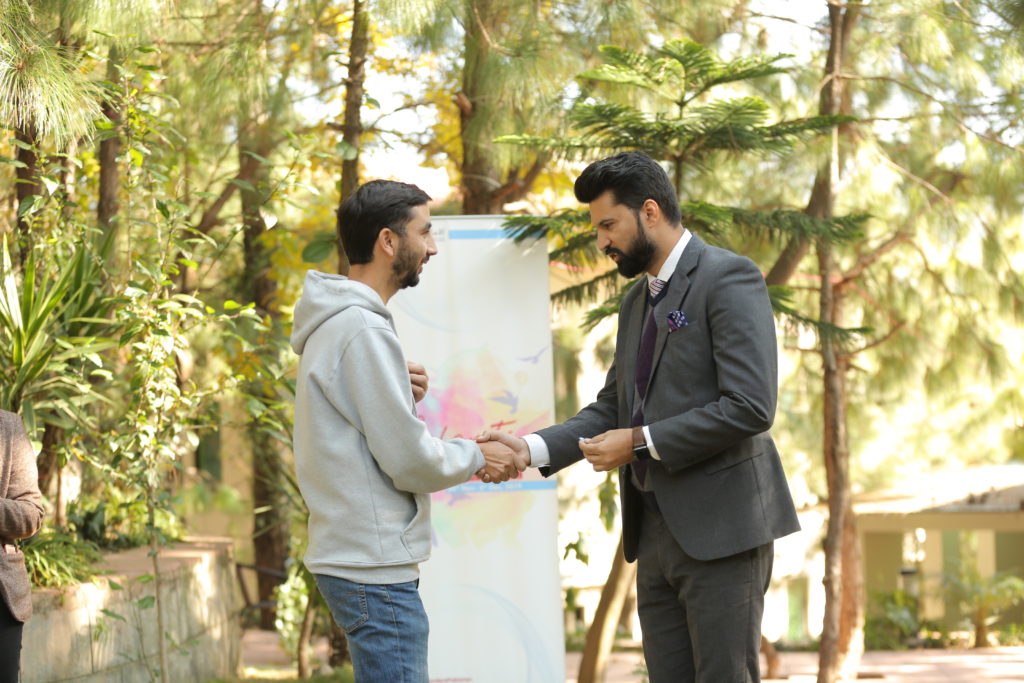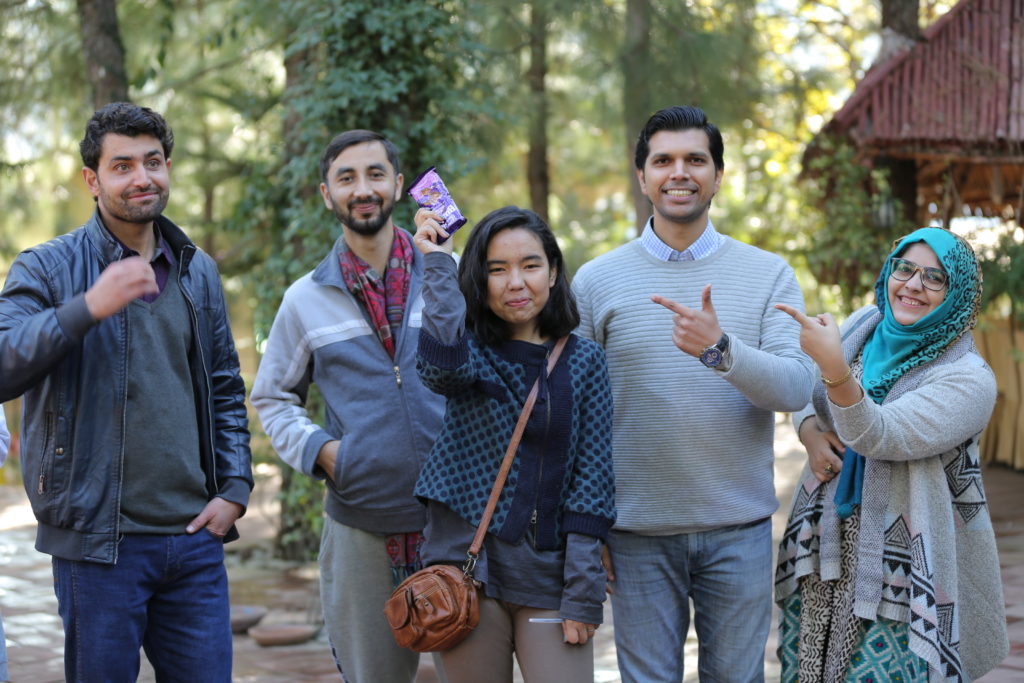Habib Hassan is working as Monitoring and Evaluation Coordinator at Federal SDGs Support Unit, Ministry of Planning, Development and Special Initiatives in Pakistan. He is working on formulating national Monitoring and Evaluation Framework for SDGs. He also teaches Urban Economics to senior students at school of Economics, Quaid-i-Azam University, Islamabad. An Erasmus Mundas Scholar, he holds master in macroeconomics and financial policies from University of Paris and University of Massachusetts, Amherst. He has experience of working with youth in Pakistan. Gilgit-Baltistan Youth Summit 2016 was held under his supervision sponsored by US Embassy in Pakistan. He also worked as United Nations Volunteer (UNV) with UNDP for six month training students on civic education. He was also involved in ethnographic study for studying adolescents’ inspirations and aspiration in two villages in rural Sindh. His interest revolve around cities, youth, innovation and ideas for sustainable future communities.
Special Opertion
Interactive Session on Peace and Tolerance
Activity Report
Mashal Model School, Islamabad November 9th, 2019
Number of Participants: 14
Boys: 7
Girls: 7
Agenda:
- Deeper understanding about Peace
- Islam & Peace
- Aggregation of Individual for collective Peace
Mashal Model School in Bari Islamabad is a special school for street children opened by Mashal Trust in 2008. In Bari-Imam the residents belong to all over the Pakistan making it a very diverse society just like any other slum. I am volunteering in this school since 2014 in the capacity of teacher, counsellor and now help in fund raising and management. In past, I had not very specifically talked to the students about peace and tolerance.
I arranged one-hour interactive session on ‘‘Peace & Tolerance’’ with 14 students of class 9th, at Mashal Model School Bari Imam. The purpose of the session was to understand what peace means to the students studying in a high school in a slum and broaden their views about peace and tolerance. I asked, one by one, what peace means to them. Peace for them is quietness, not having fights and crowds, rest and not having war and terrorism. I then asked what factors results in chaos and anarchy in the society. They believe that most of the people don’t practice Islam in its true spirit that is the reason for chaos. One student innocently responded that inflation is one reason for the anarchy in Pakistan.
I asked the students what factors can bring peace and tolerance and how Islamic teachings are all about peace. All students shared their understating about the teachings of Islam regarding peace. I shared my knowledge about Islam, peace and Tolerance through various verses from Quran, Hadees and stories from the life of Muhammad(PBUH). I emphasized to learn methods of individual peace thorough daily self-reflections. I argued that if more people has inner-peace then there would be more peace in society. The peace starts from individual inner peace to the national and global peace.
The student took keen interest and actively participated in the discussion. They felt more peaceful at the end of the session and committed to ponder on peace and learn more about the importance of peace in Islam.
Some glimpse of the session is given on next page
















Leave a reply